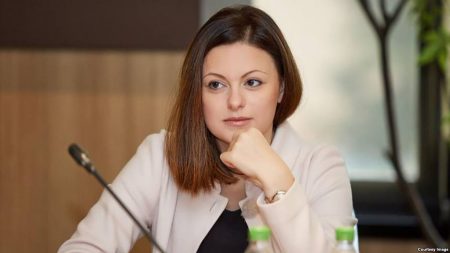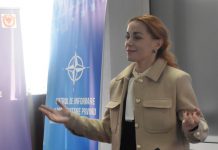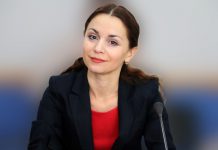Victoria Bucătaru, executive director, Foreign Policy Association
At its 27th anniversary of Independence that we are celebrating at this end of August, one of the most important questions for the Republic of Moldova remains its viability. De jure, we are an independent state, recognized as a full-fledged actor on the international
arena. There is, de facto, much to do to strengthen this independence. De jure, we have territorial integrity, de facto we don’t. We fought for democracy, freedom and market economy, but did we learn to appreciate them all and capitalize on these achievements?
The Republic of Moldova is known as one of the postsoviet states which, following the break-up of the USSR, on August 27, 1991, chose to align to the European values and institutions. However, the transition period has proved to be rather long – much longer, in fact, compared to other countries that seem to have had the same starting point, but have developed at a much faster pace. First of all, it is about the Baltic States which, for almost 15 years already, have been members of the European Union, but also of the North Atlantic Alliance. It is to them – Latvia, Lithuania and Estonia – that I will continue to refer, because they are success stories, succeeding, despite the geopolitical dificulties, to break the Soviet past and redirect to other forms of cooperation and alliances. But what prevents us from doing the same thing? According to the “Freedom in the World 2018” rating, developed by “Freedom House”, all three Baltic States have been qualified as free, while the Republic of Moldova remains partially free with a downward trend. The same applies to the freedom of the media in the three countries, a trend that demonstrates the viability and power of the values of the European Union as a collective structure. Of course, the unsuccessful examples of Poland and Hungary at the moment could obscure the systemic stability of the European Union. But here comes a crucial element, namely, the culture and political legacy, as well as the influence that third-party actors exert within the community. In general, political elites play a decisive role in the development, modernization and assurance of the progress of a state, being the actors that give impetus to the development of society. The so-called “new politcal elite”, having the support of the majority of the population, changed the Moldovan internal and external policy path towards the West. Although the train has “derailed” significantly in the past few years, the European orientation has remained – at least for the time being – the basic idea that gives us all hope for a better future. Also, due to the unity of political elites and the unity of the society, in order to achieve the national interest, the Baltic States and other Central and Eastern European countries have succeeded in overcoming several critical situations. As far as we are concerned, we haven’t had a sincere discussion about our national interest so far, which is why the geopolitical discourse and security vulnerabilities are commonplace in Moldova. The lack of cohesion at the national level, the lack of understanding of the values of genuine democracy, and the ignorance of historical roots (history, language, traditions, and culture) are creating a vacuum which is, unfortunately, rapidly filled with sterile discourse and invented threats that are, finally, coming to life. Thus, from a Romanian state we have become a multi-ethnic state, from the Romanian language we ended up with a state or Moldovan language, and from the History of the Romanians we have been leff with the History of no one. Today, we are talking about division in society (East-West), geopolitical factors, creation of a Moldovan civic identity, but are these really the major issues that hinder the progress and development of the Republic of Moldova? Not at all, as far as I am concerned … Moreover, the true and unifying issues are the deeply-rooted corruption, the lack of viable reforms, poor governance and non-transparent policies. Democracy and freedom imply opportunities and restrictions, benefits and responsibilities, a dignified life, but also respect for the individual, community, society and country. Only when we become aware of these simple social and political equations, will we be able to talk about viability and integrity.
Extracthttp://www.ape.md/wp-content/uploads/2018/09/P5-FES_externe_6-148-en.pdf







